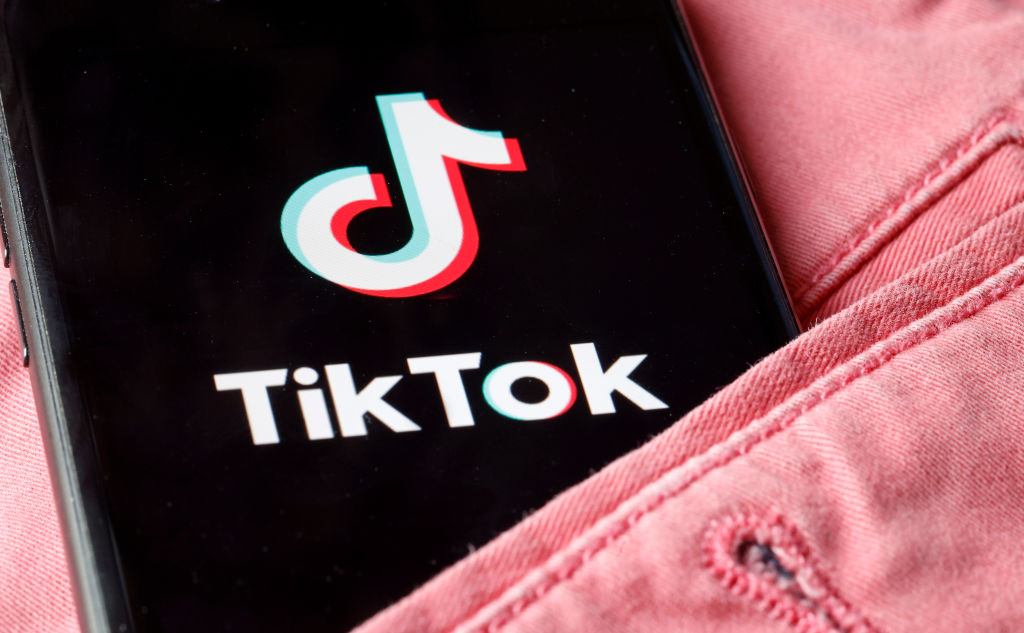
Source: Chesnot / Getty
On Wednesday, April 24, President Biden signed a bill that has the potential to impose a nationwide ban on TikTok, a development that could significantly affect Black content creators on the platform.
The bill was passed by Congress earlier in the week as part of a comprehensive foreign aid package aimed at providing support to Israel and Ukraine, according to CNN. Under the new legislation, TikTok is now required to secure a new owner within months or face a complete ban from operating in the United States.
TikTok’s Chinese parent company, ByteDance, will have a 270-day deadline to sell the App. Failure to comply would result in the popular app being barred from US app stores and “internet hosting services” that support its operations.
Black content creators are expressing concern about the looming ban.
For Black women influencers and content creators who utilize the platform, the potential eradication of TikTok could pose a significant threat, as they rely on additional income from brand deals through their channels for financial support.
During an interview with Essence, Kita Rose, a comedian, podcaster, and lifestyle content creator with a massive fanbase of 3.2 million on TikTok, revealed that she made more than $5,000 per month sharing her content on the short-form video app compared to other social media sites. She has also grown a genuine community using the app.
“Facebook wasn’t doing that—Instagram was not doing that,” Rose said. “With YouTube, you had to really be established in order to make that type of money. You had to really be established on there, and I wasn’t. It’s such a bummer that this really important platform, that really seems to be about its community and not feeding into corporate greed, is on the verge of being taken away from us.”
Before the anticipated ban, Black content creators were already experiencing disparities in terms of compensation on TikTok and various social media platforms. A 2021 MSL study found that 77% of Black influencers were categorized as nano and micro-influencers, with fewer than 50,000 followers, earning an average of $27,000 annually from brand collaborations (compared to 59% of white influencers).
Additionally, only 23% of Black influencers (in contrast to 41% of white influencers) are classified as macro influencers, boasting 50,000 or more followers, with earnings averaging over $100,000.
Taylar Barrington, the owner of Agency Cliquish, a management firm specializing in Black digital talent, contended that the potential erasure of the platform would jeopardize Black women entrepreneurs’ capacity to expand and elevate their businesses due to its popularity.
“What a lot of people don’t realize is content creators are essentially small businesses,” Barrington added to Essence. “Black creators could possibly miss out on continuing to grow their business on a viable platform. We’re really talking about economic impact here.”
Competition is also a concern.
Jade Beason, a social media marketer, content creator, and enthusiastic side hustler, speculated that if TikTok were to face a ban in the U.S., influencers would gravitate toward platforms like YouTube, Instagram, and others to showcase their content. This influx of creators could lead to a surge in both original and archived content, as well as heightened competition among creators.
Beason highlighted the potential for a unique opportunity on these alternative platforms, suggesting that marketers from TikTok may migrate to other sites to establish partnerships with creators, potentially offering enhanced earning potential.
Rapper and beauty guru Destiny Marilyn, who boasts over 40,000 followers on TikTok, doesn’t seem concerned about the financial implications of the ban. However, she expressed frustration over losing access to valuable resources for learning about news, recipes, beauty tips, diverse cultures, and entertaining videos.
“I’ve learned way too much on that app for me to leave. How else will I find someone the same shade as me try on makeup??” she captioned a humorous video posted to her account on April 21.
Users can continue to download and utilize TikTok for now. However, access to the app may be interrupted if ByteDance fails to meet the sale deadline, scheduled for January 19, 2026, as reported by CNN.
Thoughts?
DON’T MISS….
8 Black Influencers To Follow On TikTok
What Does The Impeding TikTok Ban Mean For Black Women Content Creators? was originally published on hellobeautiful.com







